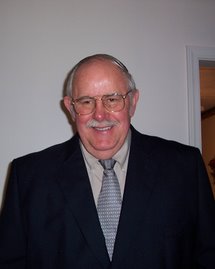
"This is a faithful saying, and worthy of all acceptation, that Christ Jesus came into the world to save sinners; of whom I am chief" (1Timothy 1:15).
The saying that it was to "save sinners" that Christ Jesus came into the world is a faithful one, and worthy of all acceptation. And that means that it is not the primary function of Christianity in the world to educate men, though we shall not get along without teaching; or to ameliorate their physical and social condition, though we shall not get along without charity; but to proclaim salvation from sin. It exists in the world not for making men wise, nor for making them comfortable, but for saving them from sin. That done and all is done—each result following in its due course. That not done, and nothing is done. All the wisdom of the ages, all the delights of life, are of no avail so long as we are oppressed with sin. The core of the gospel is assuredly that Christ Jesus came to save sinners.
We need, however, once more to adjust the emphasis more precisely in order to gain the whole message of our passage. What Paul declares to be a faithful saying, and worthy of all acceptation, is that Christ Jesus came to save sinners. Put the emphasis now on the one word "save"—Christ Jesus came to save sinners.
Not, then, merely to prepare salvation for them; to open to them a pathway to salvation; to remove the obstacles in the way of their salvation; to proclaim as a teacher a way of salvation; to introduce as a ruler conditions of life in which clean living becomes for the first time possible; to bring motives to holy action to bear upon us; to break down our enmity to God by an exhibition of His seeking love; to manifest to us what sin is in the sight of God, and how He will visit it with His displeasure. All these things He undoubtedly does. But all these things together touch but the circumference of His work for man. Under no interpretation of the nature or reach of His work can it be truly said that Christ Jesus came to do these things. For that we must penetrate deeper, and say with the primitive Church, in this faithful saying commended to us by the apostle, that Christ Jesus came to save sinners.
We must take the great declaration in the height and depth of its tremendous meaning. Jesus did all that is included in the great word "save." He did not come to induce us to save ourselves, or to help us to save ourselves, or to enable us to save ourselves. He came to save us. And it is therefore that His name was called Jesus— because He should save His people from their sins. The glory of our Lord, surpassing all His other glories to usward, is just that He is our actual and complete Saviour; our Saviour to the uttermost.
(From The Person and Work of Christ; Presbyterian and Reformed, c.1950; some emphasis mine cw)




















